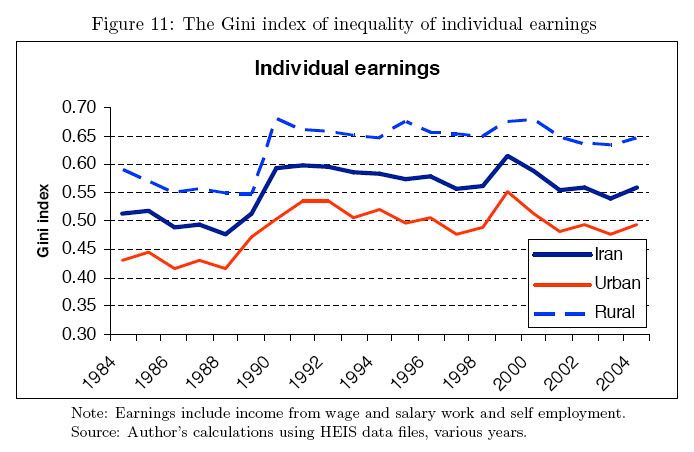Sunday, March 02, 2008
"Why Have Moderate Reformers Failed So Uniformly across the Middle East?" posted by Yoshie
Patrick Cockburn, in his review of Robin Wright's Dreams and Shadows: The Future of the Middle East, asks: "Why have moderate reformers failed so uniformly across the Middle East?"Opening on an optimistic note, [Robin] Wright describes how in 1983 she stood across the street from the ruins of the United States Embassy in Beirut after more than 60 Americans had been killed by a suicide bomber. At that time, she recalls, it seemed that Islamic fundamentalists had the initiative and were shaping the future of the region. "Yet a generation later," she writes, "Islamic extremism is no longer the most important, interesting or dynamic force in the Middle East."
It would be good if this were true, but in general the stories Wright relates of brave reformers battling for human and civil rights show them as having had depressingly small influence. She claims there is "a budding culture of change" represented by "defiant judges in Cairo, rebel clerics in Tehran, satellite television station owners in Dubai, imaginative feminists in Rabat and the first female candidates in Kuwait, young techies in Jeddah, daring journalists in Beirut and Casablanca, and brave writers and businessmen in Damascus." Sadly, her own research largely contradicts this thesis. Of the many opponents of the status quo she writes about, the only ones to have achieved a measure of success are religious movements: Hamas in Gaza and the West Bank and Hezbollah in Lebanon. She does not cover Pakistan, but the assassination of Benazir Bhutto in Rawalpindi in December shows that suicide bombers retain their deadly ability to shape events. (Patrick Cockburn, "The End of Jihad," New York Times, 2 March 2008)
My answer to Cockburn's question is that so-called "moderate reformers" tend to come from upper classes and stratas, which distances their policies -- liberalism in political economy, appeasement of Tel Aviv and Washington in foreign policy -- and their cultures -- very secularized and, what is worse, sometimes committed to secularism of the elite -- from those of the poorer majority who, unlike their betters, actually care about the Palestinians, and whose economic troubles (creating legions of young men too poor to marry in societies where extra-marital sex with women of their own cultures is very much discouraged1 -- a structural problem now aggravated by rising inflation, which is in part due to the declining dollar) can't be solved by liberalism (more gender equality to enable more women to engage in wage labor and to make up for the end of "family wages" and scarcity of government jobs -- a classic liberal solution to the end of the post-WW2 economic boom).
Moreover, a number of such "moderate reformers" are quick to jettison political liberalism, whose cornerstone is habeas corpus, and side with dictatorial governments when they are confronted by terrorism . . . or sometimes a mere rise of an Islamic movement.2
The only successful liberals in the Middle East have been religious ones, such as Mohammad Khatami and his fellow reformists in Iran and the Justice and Development Party (AKP) in Turkey. Reformists in Iran, however, were done in by a poorer majority who didn't think that cultural liberalization made up for the rising earning inequality resulting from economic liberalization (cultural and economic liberalizations tend to be two sides of the same coin).
Click on the graph for a larger view.
SOURCE: Djavad Salehi-Isfahani, "Revolution and Redistribution in Iran: Poverty and Inequality 25 Years Later," August 2006, p. 34
1 The rulers of the Middle East have yet to assimilate the Japanese lesson: political tranquility can only be assured by thoroughgoing alienation and commodification of sex that leaves little libido for the personal and none at all for the political.
2 See, for instance, Anouar Boukhars, "North Africa: the Dilemma of the Secularists," Bitterlemons-international.org, 25.5, 28 June 2007; and Marina Ottaway, "Continued Decline Is Not Inevitable," Bitterlemons-international.org, 25.5, 28 June 2007.
Labels: class, egypt, imperialism, iran, islam, secularism, turkey










